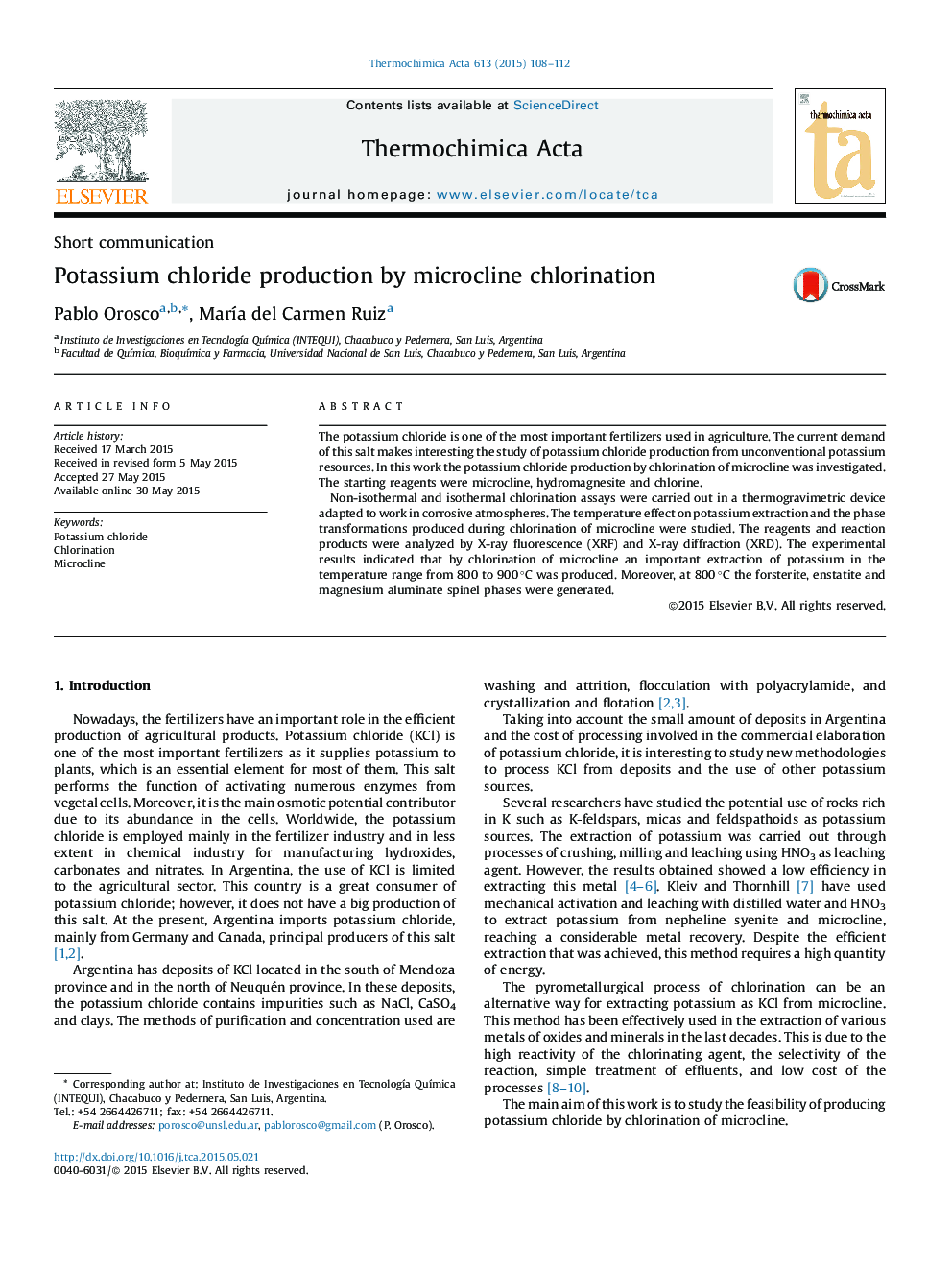| Article ID | Journal | Published Year | Pages | File Type |
|---|---|---|---|---|
| 673055 | Thermochimica Acta | 2015 | 5 Pages |
•Use of chlorination for the KCl production.•The reagents used were microcline, hydromagnesite and chlorine.•Isothermal and non-isothermal assays were performed in Cl2–N2 mixture.•The chlorination generated KCl at 700 °C.•The chlorination products promote KCl formation.
The potassium chloride is one of the most important fertilizers used in agriculture. The current demand of this salt makes interesting the study of potassium chloride production from unconventional potassium resources. In this work the potassium chloride production by chlorination of microcline was investigated. The starting reagents were microcline, hydromagnesite and chlorine.Non-isothermal and isothermal chlorination assays were carried out in a thermogravimetric device adapted to work in corrosive atmospheres. The temperature effect on potassium extraction and the phase transformations produced during chlorination of microcline were studied. The reagents and reaction products were analyzed by X-ray fluorescence (XRF) and X-ray diffraction (XRD). The experimental results indicated that by chlorination of microcline an important extraction of potassium in the temperature range from 800 to 900 °C was produced. Moreover, at 800 °C the forsterite, enstatite and magnesium aluminate spinel phases were generated.
